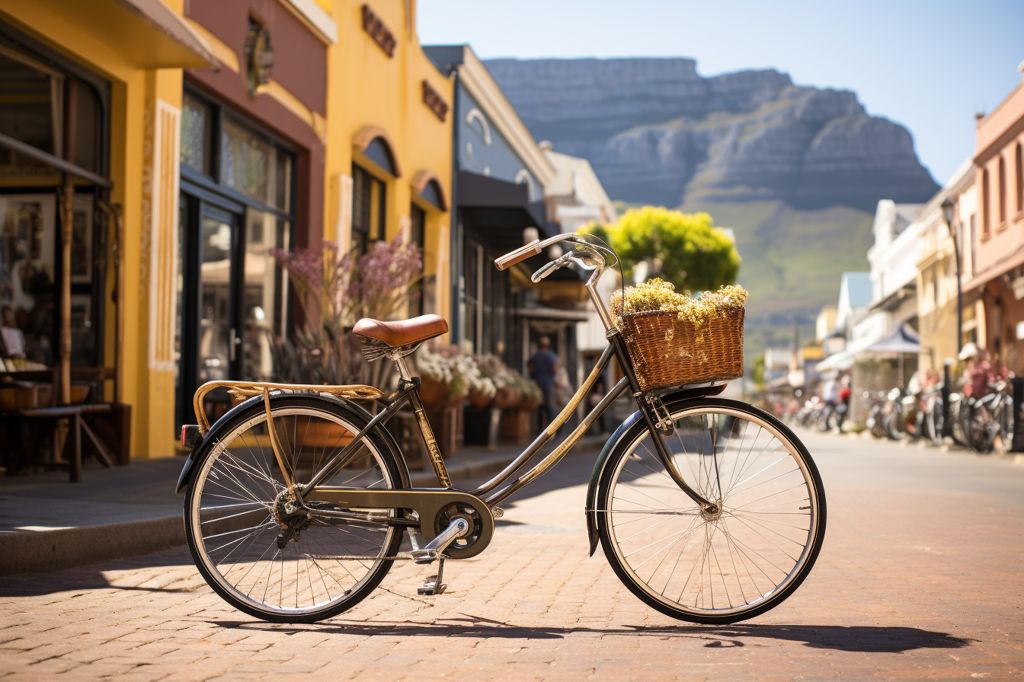The Running Late Club in Cape Town is a community of runners that has brought people from different backgrounds together. It was founded by Wayne le Roux and Grace Evans, who envisioned a club that accommodates people of all fitness levels. The club’s name, which is about taking action and embracing the concept of “better late than never,” has caused some confusion, but Wayne and Grace explain it’s to address safety concerns of running alone in the dark. The Running Late Club has expanded rapidly and has become a symbol of unity and collective purpose that supports mental health and fosters inclusivity.
In the vibrant city of Cape Town, a running club has become a symbol of unity and collective purpose. Established by Wayne le Roux and Grace Evans, the Running Late Club has successfully united hundreds of people from various backgrounds to embark on a journey of self-improvement, camaraderie, and support. This is a tale of passion and transformation that embodies the saying “better late than never.”
The Origins: Fostering Inclusivity
In 2018, Wayne Le Roux came up with the idea of a comprehensive running club to help him deal with his mental health challenges. At that time, mental health wasn’t a popular topic, and Wayne sought a community that could provide support and empathy.
Wayne imagined a club that would accommodate all fitness levels, from novices to experienced athletes. It wasn’t until Grace Evans returned from her travels and discovered Wayne’s social media invitation to join a run that the Running Late Club started to take form.
The club’s name has caused some confusion, but Wayne and Grace explain that it’s about taking action and embracing the concept of “better late than never” while also addressing the safety concerns of running alone in the dark.
A Collective Effort: The Expansion of the Running Late Club
With the goal of uniting people through running, Wayne and Grace have nurtured a sense of community and teamwork among their members. This camaraderie has contributed to the club’s rapid expansion, extending from Somerset West to Cape Town.
The Running Late Club also strives to support local businesses, frequently collaborating with establishments like Holy Dough pizzeria to provide discounted meals to participants.
Adapting to the Pandemic
When the Covid-19 pandemic hit in 2020, Wayne and Grace had to think outside the box. They shifted their focus to virtual training, which allowed them to stay connected and motivated.
As pandemic restrictions eased, Wayne and Grace started rebuilding the Running Late Club, reaching out to friends and the general public via social media. Nowadays, the club attracts up to 200 participants per run.
Mental Health Support: Running as a Healing Tool
The Running Late Club’s emergence during the pandemic provided a priceless outlet for those struggling with the effects of isolation and the impact on mental well-being. Wayne’s initial vision of offering an accessible community has come full circle, providing support and connection to those who need it most.
Upholding the Core Values of the Running Late Club
Despite its rapid expansion, the Running Late Club remains dedicated to its fundamental values of inclusivity and community. Wayne and Grace stress the importance of knowing each participant’s name and cultivating connections among members.
Taking the First Step: Joining the Club
To become a member of the Running Late Club, all one has to do is take the first step. The club welcomes runners of all levels and ensures that nobody is left behind during their 5 km social runs. Meeting points and details for runs and events are shared through the club’s Instagram page.
In summary, the Running Late Club is an outstanding example of the power of community and the impact of chasing one’s passions. It serves as a beacon of hope, support, and connection during a time when it’s needed the most. With its unwavering dedication to inclusivity and camaraderie, the Running Late Club is set to continue inspiring and uplifting numerous individuals on their journey towards improved physical and mental health.
1. What is the Running Late Club?
The Running Late Club is a community of runners in Cape Town that accommodates people of all fitness levels and brings individuals from different backgrounds together.
2. Who founded the Running Late Club?
The Running Late Club was founded by Wayne le Roux and Grace Evans.
3. What is the inspiration behind the club’s name?
The club’s name is about taking action and embracing the concept of “better late than never” while also addressing the safety concerns of running alone in the dark.
4. How has the Running Late Club expanded?
The Running Late Club has expanded rapidly, extending from Somerset West to Cape Town, and has become a symbol of unity and collective purpose.
5. How has the Running Late Club adapted to the pandemic?
The Running Late Club shifted its focus to virtual training during the pandemic and later started rebuilding its community by reaching out to friends and the general public through social media.
6. Does the Running Late Club offer mental health support?
Yes, the Running Late Club provides a priceless outlet for those struggling with the effects of isolation and the impact on mental well-being, offering support and connection to those who need it most.
7. What are the core values of the Running Late Club?
The Running Late Club is dedicated to its fundamental values of inclusivity and community, stressing the importance of knowing each participant’s name and cultivating connections among members.
8. How can I join the Running Late Club?
To become a member of the Running Late Club, all one has to do is take the first step. The club welcomes runners of all levels and ensures that nobody is left behind during their 5 km social runs. Meeting points and details for runs and events are shared through the club’s Instagram page.








